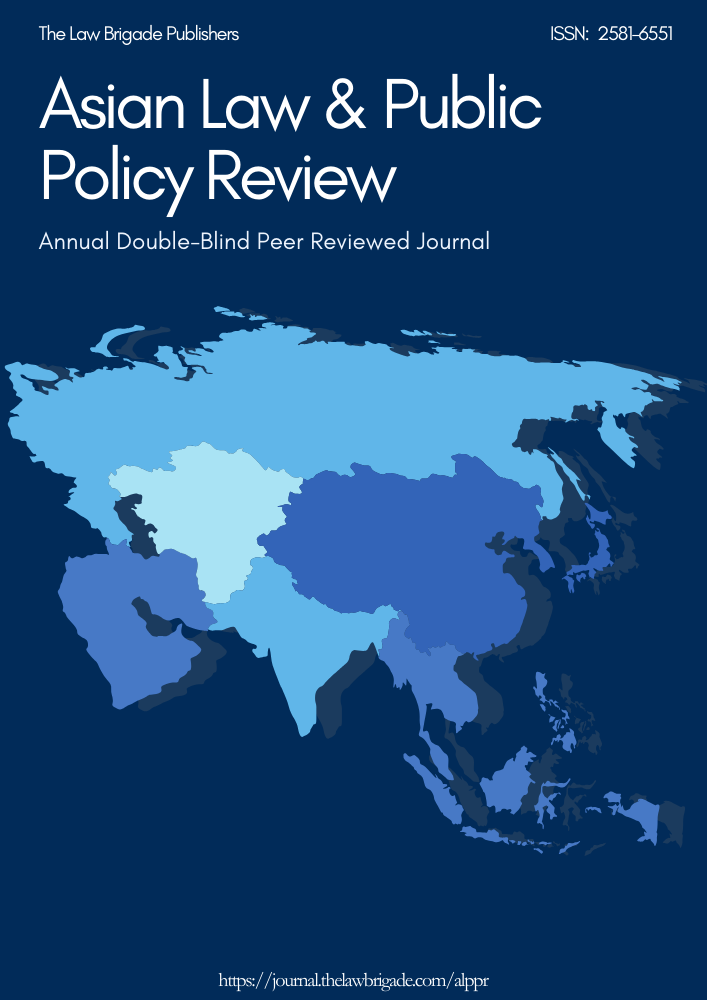INFORMATIONAL PRIVACY AND DATA PROTECTION IN INDIA
Keywords:
Data, Data protection, Privacy, Policy MakingAbstract
India’s new slogan “AI (artificial intelligence) for all” was revealed in the discussion paper of the National strategy for AI. This is the development in the aftermath of Justice Puttaswamy case’s judgement in August 2017.The judgement analysed in length and breadth the right to privacy and the data protection. The judgement established “right to privacy” as a fundamental right when Indian Government massively started collecting the data for “digital India”. It has come to the stage of balancing the collective rights and individual rights. This time India is heavily relying on the latest technological development like AI to reflect on social, legal and political institutions. India wants to fortify the institutions through technology, as it is a land of masses. It is impossible to handle ‘big data’ in the real sense without using complex latest technology. Collecting personal details massively and protecting them is a complicated process. This paper critically analyse India’s way of governing ‘Big data’ and its implication on vital institutions.
Downloads
References
1.Shukla .V.N.,Constitution of India,(Eastern Book Company,2006)
2. Justice K .S .Puttaswamy (retd.),. and anr.. v Union Of India and ors ,(civil) writ petition)
NO 494 OF 2012
3.http://supremecourtofindia.nic.in/supremecourt/.../35071_2012_Judgement_24-Aug2017.pdf.
4.http://ec.europa.eu/justice/policies/privacy/docs/studies/new_privacy_challenges/final_repo
rt_country_report_A4_germany.pdf
5. drops.dagstuhl.de/opus/volltexte/2011/3205/.../dagman_v001_i001_p001_11061.pdf
6. https://www.bea.aero/uploads/tx_elydbrapports/BEA2015-0125.en-LR.pdf.
Downloads
Published
Issue
Section
License

This work is licensed under a Creative Commons Attribution-NonCommercial-ShareAlike 4.0 International License.
License Terms
Ownership and Licensing:
Authors of research papers submitted to any journal published by The Law Brigade Publishers retain the copyright of their work while granting the journal specific rights. Authors maintain ownership of the copyright and grant the journal the right of first publication. Simultaneously, authors agree to license their research papers under the Creative Commons Attribution-ShareAlike 4.0 International (CC BY-SA 4.0) License.
License Permissions:
Under the CC BY-SA 4.0 License, others are permitted to share and adapt the work, even for commercial purposes, provided that appropriate attribution is given to the authors, and acknowledgment is made of the initial publication by The Law Brigade Publishers. This license encourages the broad dissemination and reuse of research papers while ensuring that the original work is properly credited.
Additional Distribution Arrangements:
Authors are free to enter into separate, non-exclusive contractual arrangements for distributing the published version of the work (e.g., posting it to institutional repositories or publishing it in books), provided that the original publication by The Law Brigade Publishers is acknowledged.
Online Posting:
Authors are encouraged to share their work online (e.g., in institutional repositories or on personal websites) both prior to submission and after publication. This practice can facilitate productive exchanges and increase the visibility and citation of the work.
Responsibility and Liability:
Authors are responsible for ensuring that their submitted research papers do not infringe on the copyright, privacy, or other rights of third parties. The Law Brigade Publishers disclaims any liability for any copyright infringement or violation of third-party rights within the submitted research papers.


